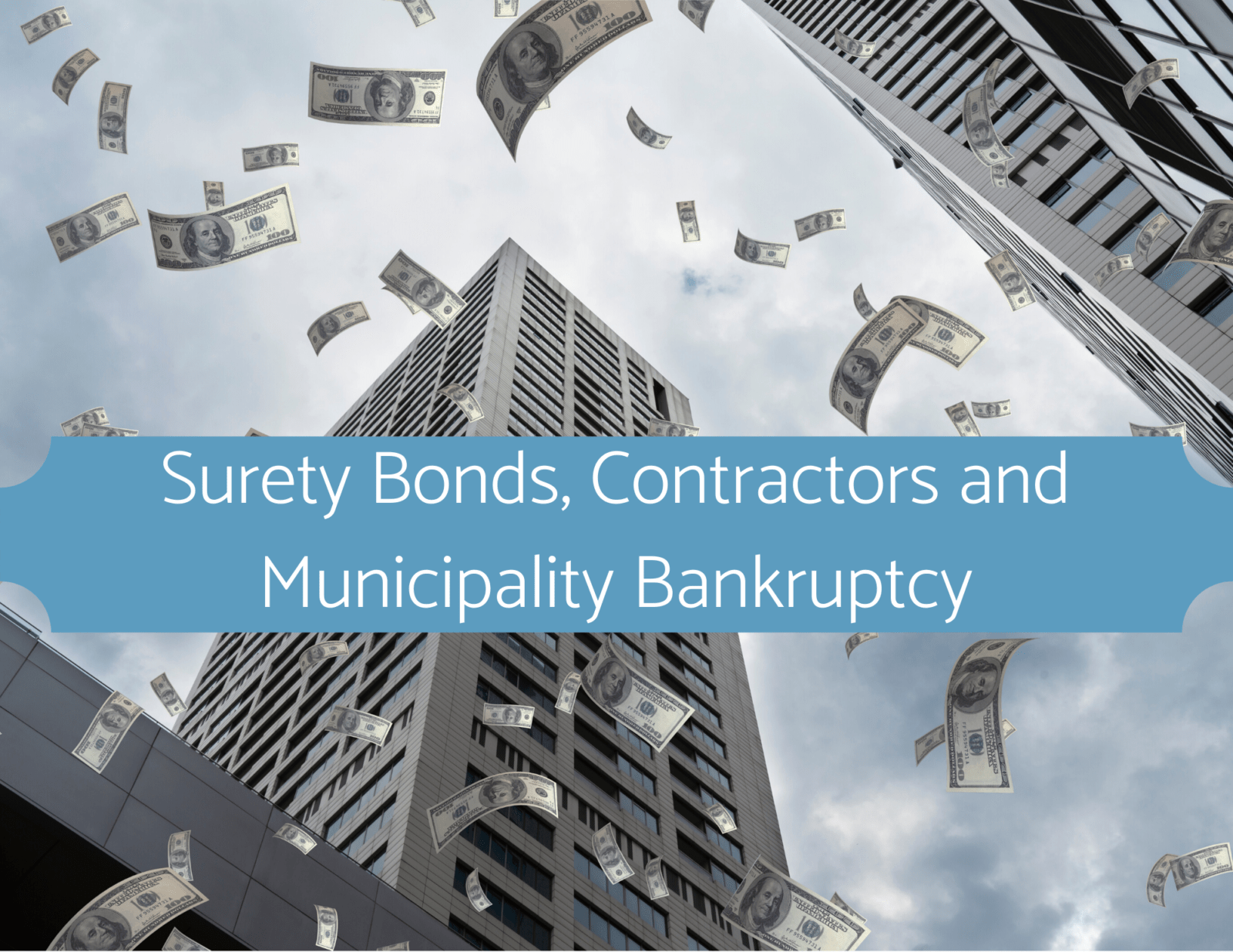Municipal bankruptcies could have a negative impact on contractors and their surety bonds. COVID-19 has presented challenging times that are unprecedented in modern society. Unfortunately, those impacts are being felt by everyone. Unemployment is skyrocketing as businesses are forced to shut down for extended periods of time. These impacts are also having a major detriment on cities and municipalities. These entities have lost major tax revenue in addition to the unexpected costs of COVID-19. Unlike the Federal Government, local municipalities must run off balanced budgets. There is growing concern that this could lead to an increase in municipality bankruptcies. This is turn could have a major impact on contractors and their surety bond companies who generally view these funds as guaranteed or at least very safe.
What is Municipal Bankruptcy?
It may surprise some that a municipality could even go bankrupt. As the saying goes, “you can’t sell City Hall.” Unlike Chapter 7 and 11 which cover corporations and personal bankruptcies, municipalities are covered under Chapter 9 of the United States Bankruptcy Code. This filing gives the municipality the protection from creditors while it develops a plan to negotiate its debts. However, not all municipalities can even file bankruptcy. States must specifically grant bankruptcy privileges. Some states have established acts while other have not addressed it, which removes Chapter 9 as an option in those states. Municipality Bankruptcy is extremely rare. Since it was implemented in 1937, less than 800 Chapter 9 filings have occurred and many of those were dismissed. However, there have been some sizable Chapter 9 filings including Detroit in 2013 with $18-$20 Billion in debt and Jefferson County, Alabama in 2011 with an estimated $4 Billion in debt.
Potential Impacts of Chapter 9 on Public Work Construction
Funding is clearly the biggest issue for contractor. It’s important to understand where the project funds are coming from. Are they out of the general fund? Were there special funds or restricted funds raised for the project? Is there any Federal money involved? General funds are the least secure, even if they are earmarked for projects. Earmarked funds for construction projects have been regularly raided to pay for budget shortfalls. On the other hand, projects with Federal money involved are the most secure. Restricted funds are also considered more secure from a Chapter 9 Bankruptcy. If a contractor can prove the funding source was restricted, they will have a good chance to exclude the project from the bankruptcy stay and continue working.
Even with projects funded out of the general fund, contractors have a good chance of getting paid eventually. The problem is usually timing. At the very least the funding will likely get delayed while the municipality works through their plan. Unfortunately, delays of any kind can be very costly in construction. The cost of idling equipment, demobilization, overhead, ect., could lead to losses for a contractor, even if the project resumes. This is likely the biggest risk to contractors and their surety bond companies in any municipality bankruptcy.
As we have said, the risk of a municipality filing Chapter 9 bankruptcy is very low. The Federal government has provided a first round of stimulus to ease the burden. Still, if this pandemic continues for any length of time, municipalities will need more assistance or may be faced with strained budgets. Contractors must keep bidding work. The most important thing contractors and their surety bond companies can do to protect themselves is to verify the source of project financing. Normally public work funds are considered extremely safe but unfortunately, these are extraordinary times. We are committed to working with contractors on the best solutions for their surety bonding and their companies. Please contact MG Surety Bonds anytime for assistance.

